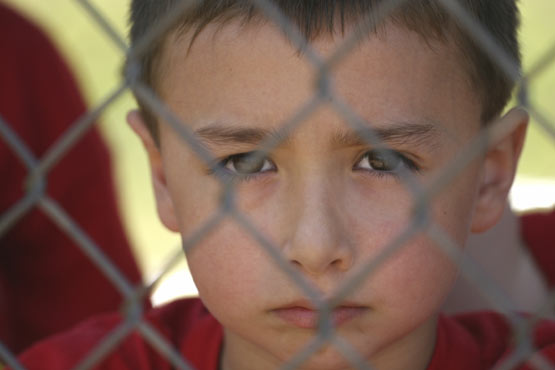
BUSY SCHEDULES FUEL MELTDOWNS
When I wasn't in school, I was a summertime nanny to three darling kids with three very busy schedules. Tennis, karate, piano, soccer, swimming, track, cooking, and other activities kept everyone (myself included) busy each day of the week.
Each morning started with wake up calls and quick breakfasts before running off to activities. In order to save time, during breakfast I became a master at pulling hair into a tight ponytail that would hold through both swim meets and soccer practice—which is quite the accomplishment.
Lunches were often eaten on the go or in shifts as the kids waited for their 30-minute piano lesson.
While everyone loved going to their various lessons and activities (with the exception of practicing the piano), there were days when it was a fight to get simple tasks done. Even with my nagging reminders, there were little fights and tantrums that would break out, seemingly unprovoked. When you are constantly rushing out the door, it is loads easier when the kids aren't arguing.
With schedules and kids to manage, I certainly didn't have time to play referee. But were these tantrums just kids being kids, or was there a reason behind it all?
Looking closer, I started to notice a pattern. On days of back-to-back lessons, there was more teasing and more time-outs. With a busy summer ahead of me, I knew I had to find a solution to the craziness in order to keep my kids happy.
TAKE A MINUTE TO BREATH
Being involved in so many activities meant that my three kids didn't know how to handle downtime. So, when free time happened (think: car rides without a movie playing), it resulted in fighting in the backseat.
When waiting in line at the grocery store or for a lesson to start, everyone seemed restless, irritable, and prone to tantrums.
No free time meant there was no time in between activities to vent. Fatigue only increased as the day went on. Back to back sport and music lessons built up frustrations into an explosive tantrum in the afternoon. I began thinking: Are these busy schedules really making kids happier?
When I compared my childhood summers to the ones I was seeing, I found some drastic differences. This long list of places to be and things to do didn't allow for the carefree days at the pool that I remembered from my past.
I decided to take charge. While two kids were waiting for their sibling to finish soccer practice, I scheduled in free time. Instead of bringing games and electronics to the park, my bag held a pail of chalk instead.
Imaginary games soon replaced structured activities and gave everyone a chance to breath. With permission from their parents, we skipped a soccer practice or two in order to allow the kids to play together in the backyard for the entire afternoon.
As a result, little tantrums surfaced early on, rather than exploding later on in the day. And that made me, and each child, happier.
FREE TIME AS A TEACHING TOOL
While I am an advocate of getting your kids involved in a variety of activities, I also am a firm believer that free time can teach valuable skills.
The truth is, your kids aren't always going to be occupied. There are little moments in life where it is crucial that children need to hold tight and not lash out because they are bored. While it's not fun to hear your kids chant "I'm bored", having unscheduled time is vital for your kid's wellbeing and happiness.
By not overscheduling summers (or the afternoons during school, or rides to the grocery store), kids will learn how to behave well without constant entertainment. This flexibility teaches patience, a skill that is disappearing in a world of smartphones and instant information. Kids learn to be able to sit quietly and occupy themselves while mom is having a conversation, instead of throwing a fit.
Free time also allows for creativity. I spent hours outside in my own imaginary world when I was a kid. Allow this spontaneity and creativity to flourish.
Though it's not appropriate to always skip lessons or leave your child days of unorganized time, learning to schedule downtime can help your kids be happier. Teach them to learn patience, how to manage "me time", and how to be creative.
The result is a life long lesson. Through the hustle of bustle of life, kids who learn the importance of free time will grow to be adults that can take a minute for themselves, and budget in some free time in their busy schedules.
Comment by clicking here.



 Contact The Editor
Contact The Editor
 Articles By This Author
Articles By This Author